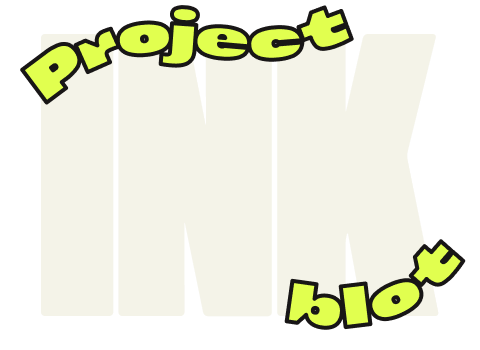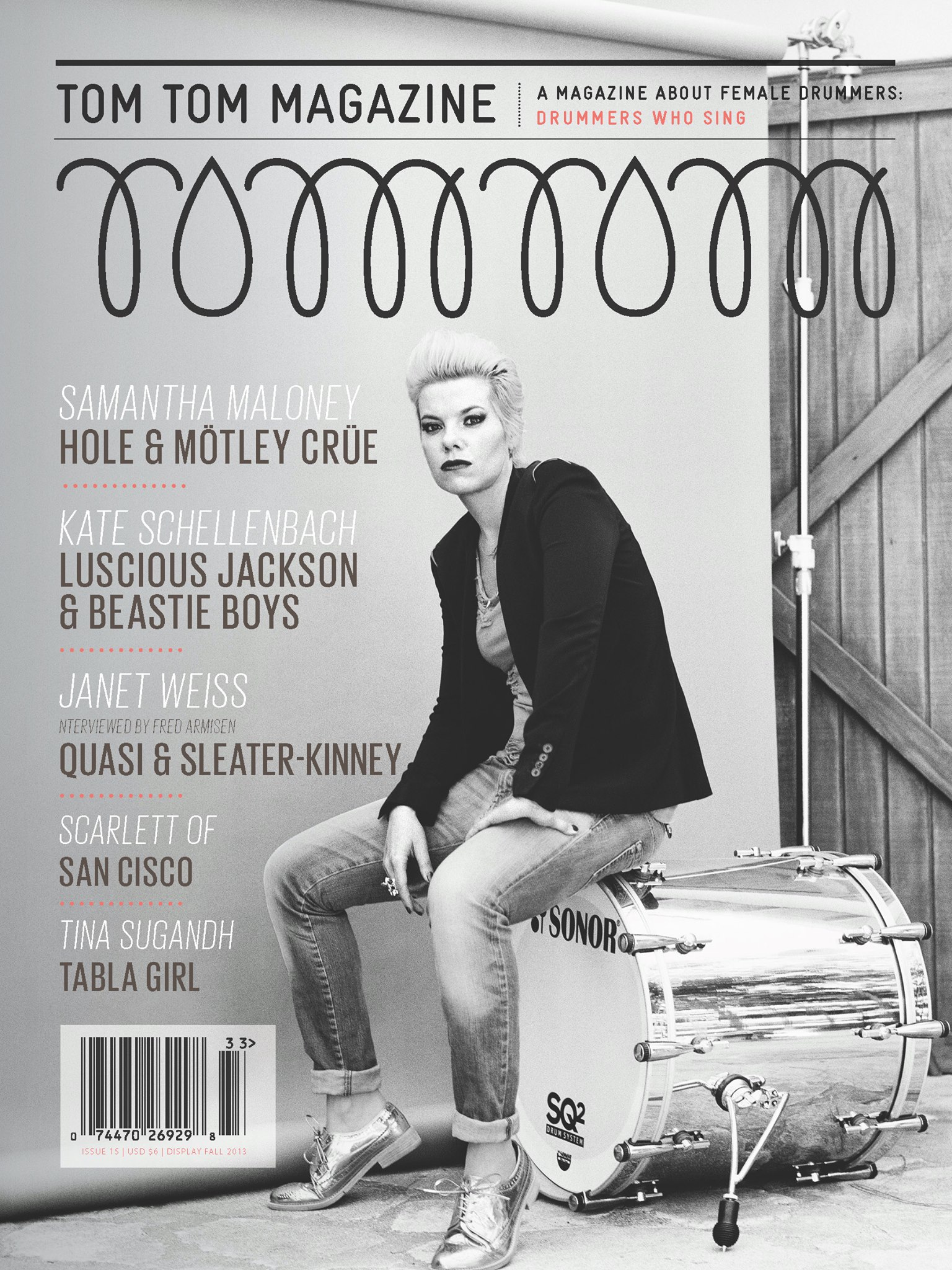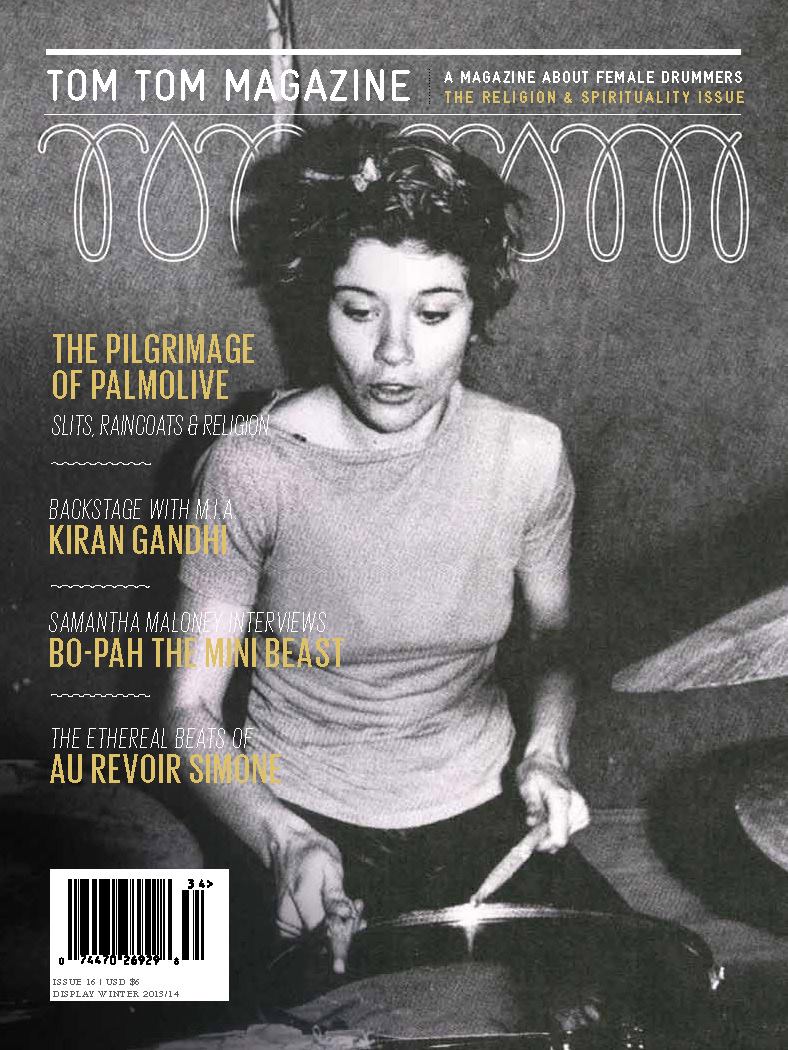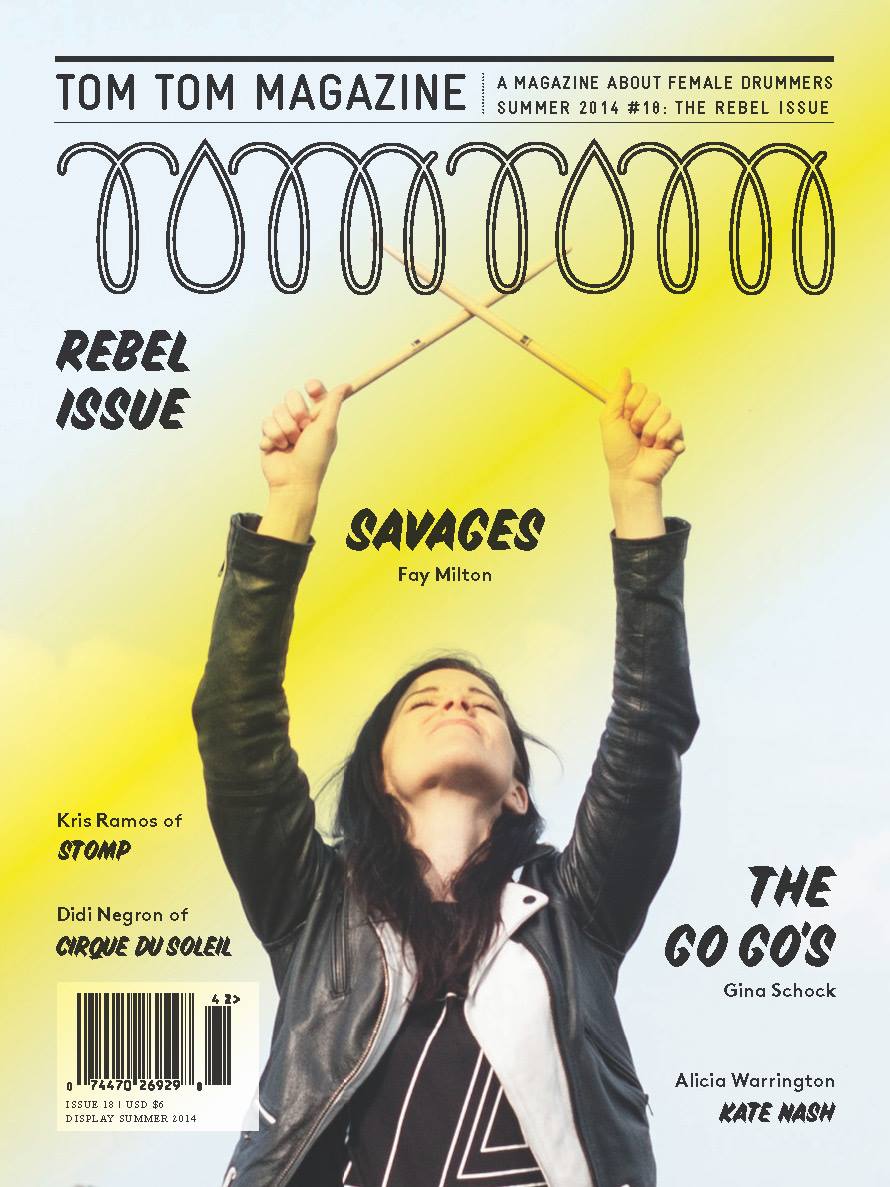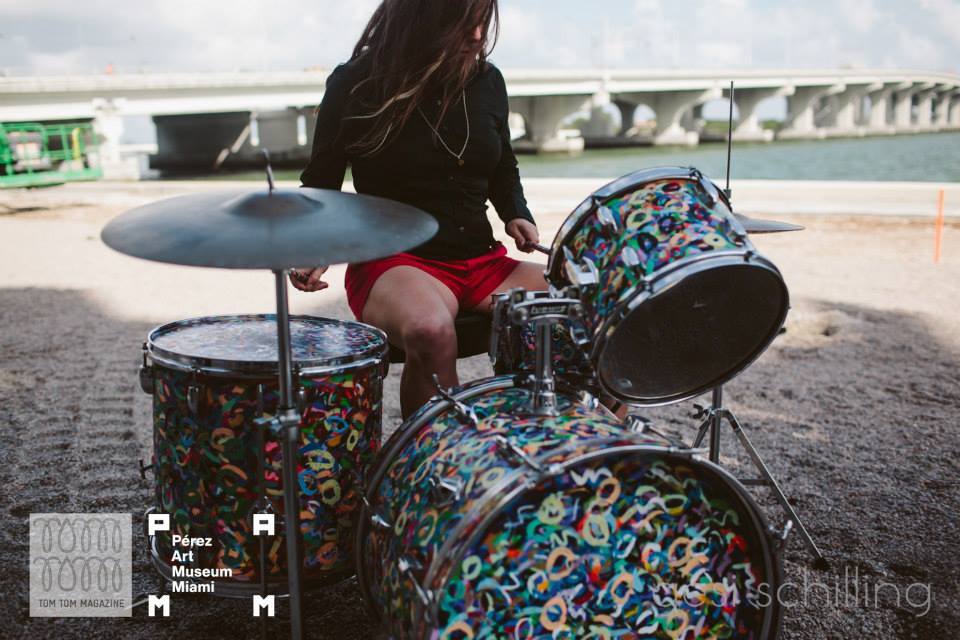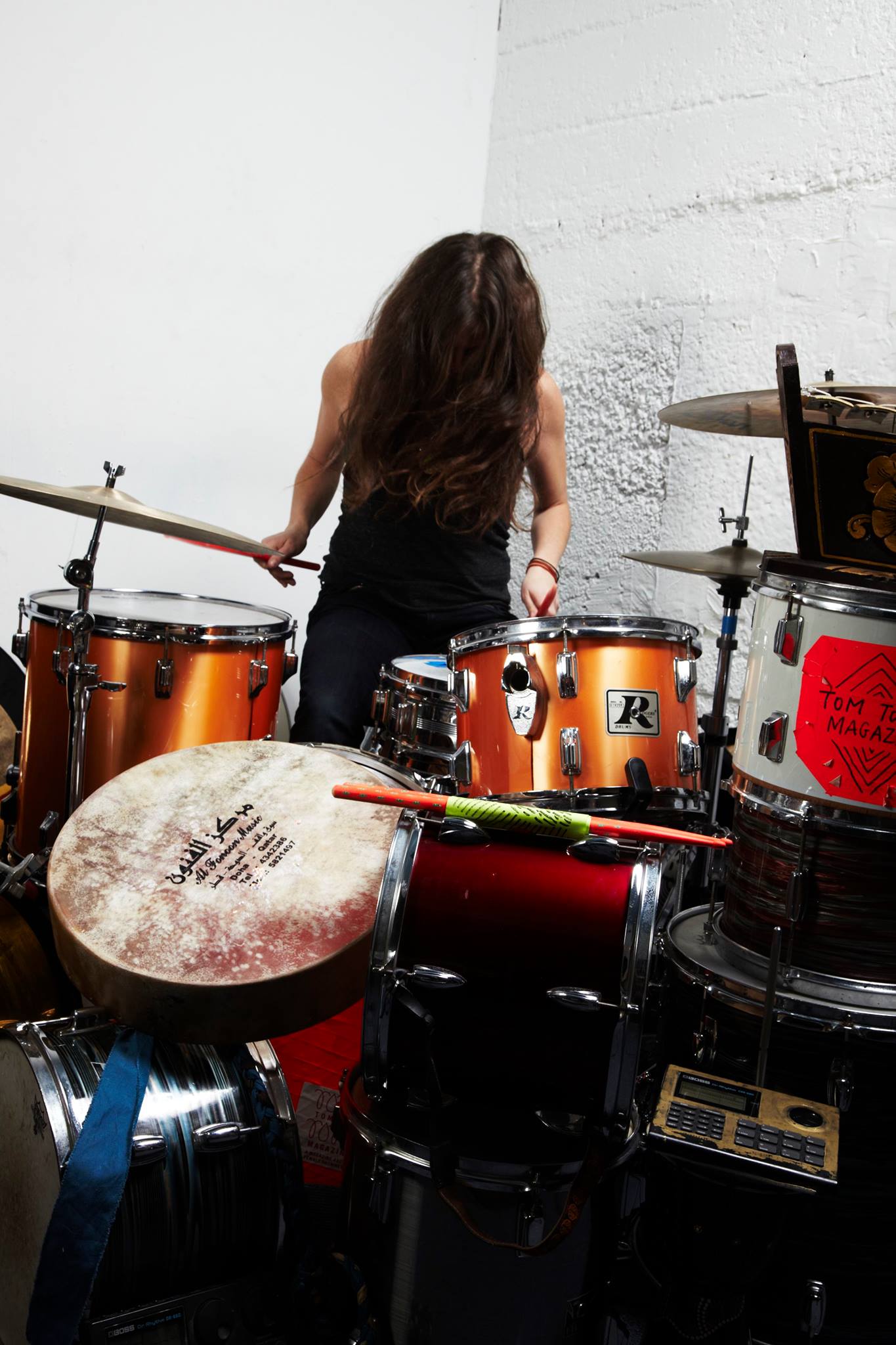Tom Tom Declares 'Drumming Is For Girls'
Sadly in 2014, anyone going to a music venue, festival, or jazz hall is still all too familiar with seeing a mostly male line-up, with the rare novelty of a woman performer (even rarer that the woman is a musician). As a former music journalist, I can say that with both certainty and regret. Mindy Abovitz, drummer and editor-in-chief of Tom Tom Magazine founded the publication with a simple mission to change all of that: To increase women musicians and drummers around the world. I might remind you now that women consist of more than half of the world's population, so naturally it would make sense to see half of the musicians of the world also be women. What's worse than not enough women musicians, is an even lesser media representation of them. Tom Tom hits both issues on the mark by committing to content that is women driven, and just damn good. It's not throwaway content about what's "hot" at the moment, but really thoughtful/thought provoking articles that speak to the everyday musician or music curious reader. For me, digging into an issue of Tom Tom is like watching Anthony Bourdain's No Reservations. You get to walk into all of these windows of vast and robust global cultural histories through the perspective of music. I met with Mindy at the Centre for Social Innovation and listened to her speak sharp truths about being a first time entrepreneur, a die-hard activist, and a life-long musician. For Mindy, the buck doesn't stop at Tom Tom, she has some bigger visions ahead...
Where are you from?
Miami. My family is Israeli. I’ve lived in New York for about 12 years without any family here. Now I live in Greenpoint, which is a really cool neighborhood because there are so many upstarts there. Kickstarter just moved there and it feels a little like San Francisco just within the last year, but it's still a very Polish neighborhood.
Walk me through how you decided to start Tom Tom.
By 2009, I had already been playing drums for 9 years, and also working in the industry at Main Drag Music, East Village Radio, throwing shows at my house, and doing live sound at the Cake Shop. I had a variety of jobs in the music industry and was in touring bands. I was making money in what I’ll call “a man’s world,” while simultaneously living in this mirroring world that was all women musicians where I was a volunteer drum instructor for Rock Camp for Girls and viBE SongMakers. I was working at East Village Radio, I did a search for "girl drummer", "women drummer", "female drummer" on Google and what I pulled were real shitty results. I’ve been a raging feminist ever since I was born--and I’m getting things like, “can girls play drums?” in Yahoo Questions, scantily dressed women on drum sets. I thought, I have enough skills now, and it’s a kind of a plebeian-like moment on the internet where it feels like a regular person like myself could look larger than myself and potentially make a dent. And I decided, I’m going to start a blog. It’s going to be a magazine about female drummers, and if there’s one already, I’m going to work with them, and if there isn’t, I’m going to be it.
My first and only goal was to change those search results, to actually have something accurate come back, something that I would feel good about. I wanted a real representation of a woman at the kit really playing, and telling her story.
I started our blog in 2009. The first interview was of me interviewing myself. I was certain that there would be another magazine about girl drummers. I start telling people what I was doing, and surprisingly no one else was doing it. Then friends of mine who are now artists that people care about, wanted to be in the magazine and to be interviewed. Friends wanted to photograph them, and other friends wanted to write about them. People just started climbing out of the woodwork and somewhere five or six months in, people asked for the next level of validity, which was putting it into print. I had zero intention of starting a magazine.
We put out the first issue in November 2009, which was 16 pages long. I called it quarterly because that seemed like the least amount of commitment that I could put in. It is actually an enormous amount of commitment.
Has the focus of your work changed over the years, and if so, why?
My work is now a lot less creative. It’s still very politically charged, but now I'm focused on getting advertising, specifically from the drum industry. That is the most political thing I think I can do and also the thing I think can create the most ripple and effectively reach our ultimate goal, which is more women and girls drumming. I feel like if the industry itself invests in girl drummers, by purchasing an ad and writing a check, they will follow through and make sure that women and girls start playing. It’s important for us that their drum kits are designed with girls in mind, their advertising has women in them--which I always talk to them about--and that they start looking for more female endorsees.
On the creative side, I have about a hundred people who contribute illustrations, photography, writing, design, and my staff is about 5 people who actually get paid to do that. Everyone else is volunteer.
Is the magazine something that you are passionate about doing long-term?
I am passionate about social change on a mass scale. It’s a numbers game for me. I want to see girls and women free to play the drums all over the world. If I find that there’s a better way of doing it than the way that I’m doing it, then I’ll do that. If it means that I go on TV, if it means that I make a film, I write a book, if it means I keep making a magazine, if it means I design a t-shirt slogan, whatever that key is that will change everyone’s subconscious mind, I will do that. So am I wedded to making a magazine? No. Am I keeping on plotting along, thinking that people are acknowledging and recognizing it, so that’s one step in the right direction? Yeah. Is media extremely powerful? Yes. We’ll do the magazine so long as it’s a vehicle, and so long as it’s effective.
What were the factors that made you feel that this work was absolutely necessary?
I started playing music when I was 15 years old. I was first introduced to Riot grrrl and my brother gave me the bass. I didn’t feel comfortable playing music and didn’t feel welcome to it. I felt like I had to fight to be a musician. I cried when I got my drum set at 20, and I think those emotions were built up because I probably had wanted it for so long, and didn’t know I was allowed. The next 10 years of my drumming career was about playing, and I can’t explain to you what it’s like to reach something you were always told you weren’t allowed to do, and to fight for it consistently. I felt like I had to fight to gain validity as a drummer every day, every show, every tour, every album. The goal of Tom Tom is to make it easier for all the girls and women who want to do this now and in the future, to have less of a fight.
As I became a media maker, I became also equally passionate about showing people of varying races, gender identification, class, age, ableism, body. Media is so fucked. We have an opportunity because we’re making a magazine. Cool. Let’s make it the way we wish we saw the rest of media too. There happens to be a direct mission about increasing women musicians, but within it, we are doing more than that. We don’t style any of our women, they come to the shoot and we do Wall Street Journal type photojournalism. These are people as they are, as they want to be presented. If you can’t see yourself, you feel like you don’t exist, so it’s our goal to put everybody in the magazine and to put out ethically solid media.
Is there less of a fight now?
No.
Do you feel like now you are an authority on this topic, and that a real shift has been created by the work of your magazine already?
No we haven’t reached the masses yet. We have a very strong following of people. The drum industry knows about us, which is great, but I think it might actually take 10-15 years of us doing very strategic moves for it to permeate society, maybe longer. And I’m not just interested in North America. There are parts of the world where girls and women will be killed, raped, or violated in other ways if they play music. That is a whole other level of undoing.
We have only scratched the surface. If we pull out now, it might not matter. The work we’ve done might go away. I really feel that way.
What's the process for deciding the content for each issue?
The first way that we started to do that was to assign themes to issues, themes that we knew nothing about, like country or metal or marching bands, or symphony. I was pushing my staff to reach out to people who’s work they respected but didn’t know. That has been the best part of the journey--uncovering someone who thought they were alone, thought they would never get media coverage in any possible way--and celebrating them.
What's the breakdown of your readership, and does that inform the content?
At this moment of in time, we reach a quarter million readers a month across all of our platforms: social media, web, and events. Of that, about 65% are women, the rest are guys. We don’t have any studies about the nuances between gender yet. I constantly do focus groups, and then I do discussions all around the country and around the world. I ask them to critique the magazine. Early on, in issue #2 a guy said something that resonated, which I think is still true today. He said, “this isn’t a regular drum magazine, because it’s kind of about an average drummer. It’s about an average musician. I’m reading an article about a person loading their van and going on tour, and how to keep my day job while going on tour.” Those are the kinds of stories we’re putting out there, never glamorizing the 19 piece kit.
It took us 10 issues to put Sheila E on the cover. It was pseudo intentional and also her speed too, but we weren’t, and we still aren’t trying to put that number one drummer or that number one band on the cover. They’ll be there, but we’re also going to put someone you’ve never heard about. This guy was like, “I can relate finally! I’m not comparing myself to people in your magazine, I am them.” Guys tend to really attach themselves to the magazine because it’s really human. It happens to be about women, but that doesn’t matter, because it’s about music.
What have been some the most useful critiques for the magazine?
I can mention the big critiques we’ve gotten, because surprisingly we get so few. Earlier at that same focus group we got that all of the brown people were in the second half of the magazine, not the first half. I totally noted that and made quick changes. The second major critique that we got was, we had a huge group of feminists tell us that it seemed to be fashion oriented, which was odd, because everybody chooses their own clothing and how they want to represent themselves. So I made a conscious effort to explain that everyone was wearing their own clothing, and doing their own thing, so if it looked fancy or glossy, that was everyone’s own decision. More recently--which is worth noting--I had a woman write me and say that there isn’t a lot of older drummer content in the magazine, and she noticed that when we do put an older drummer in the magazine, we are putting photos of her when she was younger. I was like, wow, thank you! The staff--everybody found out about it. I wrote her back, and everyone was cc’d on it, and I said, “you’re right. we’ll work on changing that.” We were printing these vintage photos thinking, this is when the band was popular, but these were women are still drummers now, they are not throwbacks.
How do you respond to criticism?
I like dialogue instantly. People told me early on, "do not respond to negative feedback." I don’t understand that. As soon as someone has a critique for me, I answer. I answer because I feel like communicating to people is human. What are you going to do, ignore someone? Or just make the change and they don’t know about it? Change is made by being heard, having a dialogue, and walking away and having the conversation with someone else.
Where would Tom Tom be if you weren’t here anymore?
I basically have gotten an MBA in the past four years doing Tom Tom. I read Fast Company, I read Inc. like a mad person. The question of sustainability, like who would replace you, is a new business thing that I learned a couple of years ago. There are two thoughts that flip around my head all day long, sustainability and path of least resistance for my entire team. This question of who’s going to replace me? That’s coming. I’m slowly learning about business, and I’m half way there I’d say.
Do you ever wake up not wanting to do this?
It’s not when I wake up in the morning, it’s somewhere around 4 o’clock in the afternoon, I have small panics, where I’m like, "this is too big. What am I doing? This is a beast, and it’s taking over my life." I have those moments and my mom has been really helpful. She reminds me, “these are your decisions. You built all of these decisions up to where you are right now. They have made you happy.” Basically, I’m looking at it like it’s a beast, and she reminds me that it’s my beast.
It sounds like this work can be both laborious and exhausting. Is it worth it to you?
There’s a super high to being your own boss. I’ve worked for people since I was 15 years old. I can remember what it’s like to work for other people, any second of the day. That’s another thing that’s extremely helpful. My other option is to take a teaching job or go work for a marketing company. Those are my real options. And no, I don’t want that! That’s how I snap out of those doubts.
How do you garner, not just a group of followers, but a die hard community behind this united cause?
What it is about me and Tom Tom is that I want to talk to anyone and everyone about it, and there’s zero pretension involved in the magazine. We’re not trying to do anything. Everyone is included, period. Grandma, grandpa, anybody. I think anyone and everyone has a story, obviously. Anyone and everyone could be a musician, anyone and everyone could be a drummer. I guess it’s my way of being able to interact with people. I love everybody. I mean that. I’m going to go into politics later in my life and work on mental illness, and social reform around mental illness, and rebrand and remarket it. That’s my 40s, but this is a vehicle to see how open people are. We happen to be in a sexy and cool city, and music happens to be cool, so when you add none pretentiousness to that, and it’s sort of a mindfuck. I think that might be the key to Tom Tom’s success.
Logon to Tom Tom online:
Subscribe to the magazine:
http://shop.tomtommag.com/collections/the-mag
Follow Tom Tom on social media:
Facebook || Twitter || Instagram
Tom Tom Magazine produces
with DRUM! and TRX cymbals
Interview by Boyuan Gao
